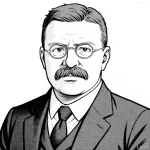“No legacy is so rich as honesty.”

- April 26, 1564 – April 23, 1616
- Born in England
- Playwright, poet, actor
table of contents
Quote
“No legacy is so rich as honesty.”
Explanation
This quote from Shakespeare’s All’s Well That Ends Well emphasizes the enduring value of honesty as a legacy, suggesting that it is the most valuable and lasting gift one can leave behind. While material wealth or worldly possessions may be fleeting and subject to decay or loss, honesty is a virtue that transcends time and provides moral strength for future generations. The quote suggests that a reputation for truthfulness and integrity is far more precious and lasting than any material inheritance, as it reflects a person’s character and moral foundation.
In modern contexts, this quote speaks to the importance of integrity in shaping one’s legacy. It implies that while wealth or property might be inherited, the true measure of a person’s impact lies in the honesty and ethical values they pass on. For example, a person who is remembered for their truthfulness, transparency, and fairness will leave a far more significant mark on the world than someone who amasses riches but lacks moral character.
Ultimately, this quote highlights that honesty is not just a personal trait, but a legacy that defines the impact we leave behind. It encourages us to prioritize truth and integrity in our lives, recognizing that these qualities have a lasting power that surpasses any material wealth we might acquire.
Would you like to share your impressions or related stories about this quote in the comments section?



